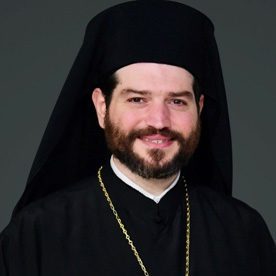Respecting Life: Caring for People with Disabilities
A disproportionate number of developing babies with a disability are not given a fighting chance to live; 9 out of 10 pre-born babies with a serious disability are aborted. This is a tragedy. While it is true that having a disability is not easy, and caring for those with disabilities comes with challenges, studies show that having a disabled person in the family actually brings a great joy to the members. Support, not abortion is what is really needed when families receive a poor prenatal diagnosis.
One such group that provides support is the office on disabilities in our local archdiocese. This Saturday, March 2, the Archdiocese of Washington is holding its Fifth Annual Conference on Faith, Deafness and Disabilities. The conference is open to the public, and individuals with disabilities and their family members are encouraged to attend.
Speakers at the conference include doctors, religious, and leaders of groups and organizations which help and care for individuals with special needs. Workshop sessions are geared toward all different groups and interests and will range from: creating fulfilling lives for those with disabilities, creating smooth lifetime transitions, caring for those who are victims of war, and working with the mentally disabled, to name a few.
One workshop, in particular, bears special recognition for pro-lifers because the focus will be to offer support for parents who have received a poor prenatal diagnosis, and feel pressure to abort. Many such parents do not realize that there are a host of treatment options for their children and places for support! For example, the Jerome Lejeune Foundation in France has made tremendous advances in research on both the physiological and intellectual treatment of Down Syndrome. Appropriately, this workshop will be led by the Jerome Lejeune USA Foundation and will also feature Isaiah’s Promise, a ministry that has helped many parents carry disabled babies to term, regardless of the amount of time the baby might be expected to live.
Parents who are presented with with a poor prenatal diagnosis, should be given treatment options! Abortion does nothing to treat an illness or condition. People with disabilities need to be treated and cared for, not aborted.
In addition to this workshop, another great resource on this issue is a conference hosted by the Council on Poor Prenatal Diagnosis, held at the Family Research Council last January. The conference offered a plethora of information on the research, treatment and support available for parents a difficult diagnosis.
Cultivating respect and care for others with disabilities is a vitally important part of building a culture of life.
